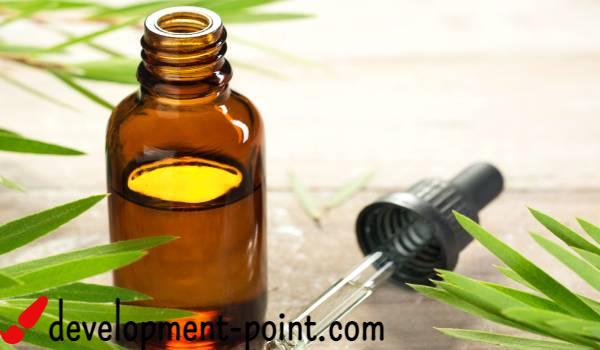The Best Dietary Supplements for Women – Everyday Medical Information
A diet that contains the vitamins and minerals the body needs; important to maintain his health. So when there is a shortage of some important nutrients, women resort to taking nutritional supplements. to make up for this deficiency. In this article, we will talk about what are the best nutritional supplements for women, so keep reading.
What are the best nutritional supplements for women?
The best nutritional supplements for women include:
1. Calcium
Calcium is an essential mineral that is found in large amounts in milk and other dairy products. Calcium usually accounts for just over 1% of a woman’s body weight, which indicates its great importance to women.
The importance of calcium in nutritional supplements for women lies in its important role for bones and teeth, in addition to its role in the work of the heart, muscles, blood clotting, and normal cell function.
And since women are up to four times more likely to develop osteoporosis than men, getting enough osteoporosis is essential for lifelong bone health.
It is preferable that the daily dose of calcium supplements not be less than 500 mg, in addition to eating foods rich in calcium, such as milk, cheese and other dairy products. In the case of taking a dose of more than 1000 mg per day, the dose should be divided in half in the morning and half in the evening. to ensure maximum absorption.
Talk to your doctor before taking calcium supplements, especially if you have a history of kidney disorders or take diuretics or other medications on a daily basis.
2. Fish Oil
Fish, such as mackerel, herring, sardines, and salmon, are a rich source of omega-3s, which contain both eicosapentaenoic acid (EPA) and docosahexaenoic acid (DHA).
And because this type of fat cannot be manufactured in our bodies, in addition to that many women do not eat enough fish, so they do not get enough of these nutrients, which makes fish oil supplements one of the most important nutritional supplements for women.
Omega-3 fats play an important role for cardiovascular health, as they reduce circulating triglycerides; To reduce the risk of heart disease. These fats also support healthy joints, reduce inflammation, and improve brain functioning. Some research has linked low omega-3 intake to mood swings and depression.
One gram of EPA and DHA per day helps most women, but those with high triglyceride levels can take 2 to 3 grams of fish oil per day along with a diet low in alcohol and fatty foods.
It is best to take omega-3 supplements with food. to improve absorption. Of course, these supplements should be taken under the guidance of a specialist, in addition to these supplements should be avoided if you are allergic to fish.
3. Folate
Folic acid is also called a B vitamin and is soluble in water. Folic acid is important for the body’s cells to make DNA. Without DNA, cells will not function properly, and new skin or hair tissue will not be made.
Folic acid is used as a nutritional supplement for women during pregnancy, especially in the first two weeks. Folic acid is critical in preventing neural tube defects in the fetus, such as spina bifida.
All adult women should also consider taking a folic acid supplement, as it is rich in many benefits that can be obtained from food sources such as spinach and cantaloupe.
The recommended dose for healthy, non-pregnant women is about 400 micrograms daily, and pregnant women should take 400 to 800 micrograms of folic acid before giving birth.
4. B vitamins
B vitamins include:
- Thiamine (B1).
- Riboflavin (B2).
- Niacin (B3).
- pantothenic acid (B5).
- pyridoxine (B6).
- Biotin (B7).
- Cobalamin (B12).
These are essential water-soluble nutrients found in many foods, including whole grains, fruits, and vegetables.
The importance of B vitamins is that women can burn more than 2,000 calories a day; Therefore, B vitamins are necessary to produce the energy needed to meet the requirements of daily life.
Vitamin B6 and B12 reduce women’s risk of heart disease by helping to keep homocysteine levels low, and vitamin B7 plays a vital role in hair health.
This is why it is preferable to provide a supplement containing B vitamins as a dietary supplement for women, along with a balanced diet containing lean meats, whole grains, fruits and vegetables.
5. Coenzyme Q10
Coenzyme Q10 is a fat-soluble nutrient found in a variety of foods, including meat and fish.
The importance of this supplement is that it is a powerful antioxidant, in addition to being a key component in helping to produce energy within cells. Coenzyme Q10 also helps protect against premature aging, and supports cardiovascular health.
Taking this supplement is important for women who are more susceptible to heart disease and cancer and who are being treated for these diseases, but you should talk to your doctor first before taking it.
The recommended dose for women is 30 to 100 mg per day, and in the case of taking more than 100 mg per day, the amount is divided into two or more servings. To promote better absorption, Coenzyme Q10 is best taken with meals for better absorption as well.
6. Vitamin D
Vitamin D is also a fat-soluble vitamin. In addition, the body can make vitamin D when exposed to sunlight, and it is also found in some products such as milk.
Vitamin D is available in two forms: ergocalciferol (D2) and cholecalciferol (D3).
Vitamin D is important; To help it absorb calcium from the diet and other nutritional supplements that women may take, it also plays a role in developing and maintaining healthy bones, in addition to its role in preventing osteoporosis.
7. Lutein
Lutein is a fat-soluble nutrient, also called a carotenoid. It is found in dark green leafy vegetables such as spinach, as well as in various fruits, corn and egg yolks.
The importance of lutein as a nutritional supplement for women includes that it is an antioxidant that is concentrated in the eye; Thus helping protect them from free radical damage and the resulting age-related macular degeneration (ARMD), a major cause of blindness in older women.
Lutein is found in the tissues of:
- breast and cervix, and helps support the health of these tissues.
- skin, and helps protect from harmful sunlight.
Frequently Asked Questions
What is the best food supplement for women after thirty?
When a woman reaches the age of thirty, she becomes more susceptible to some diseases. Therefore, nutritional supplements full of minerals and vitamins should be taken. To maintain her health, these supplements include: folic acid, calcium, vitamin E, vitamin A, and vitamin D.
What is the best food supplement for women after forty?
The best nutritional supplements for women after the age of forty are supplements that contain the following vitamins and minerals: vitamin B6, vitamin B12, vitamin C, vitamin D, and folic acid.

